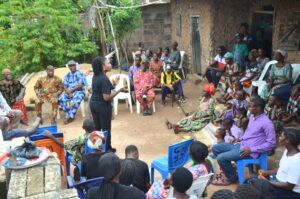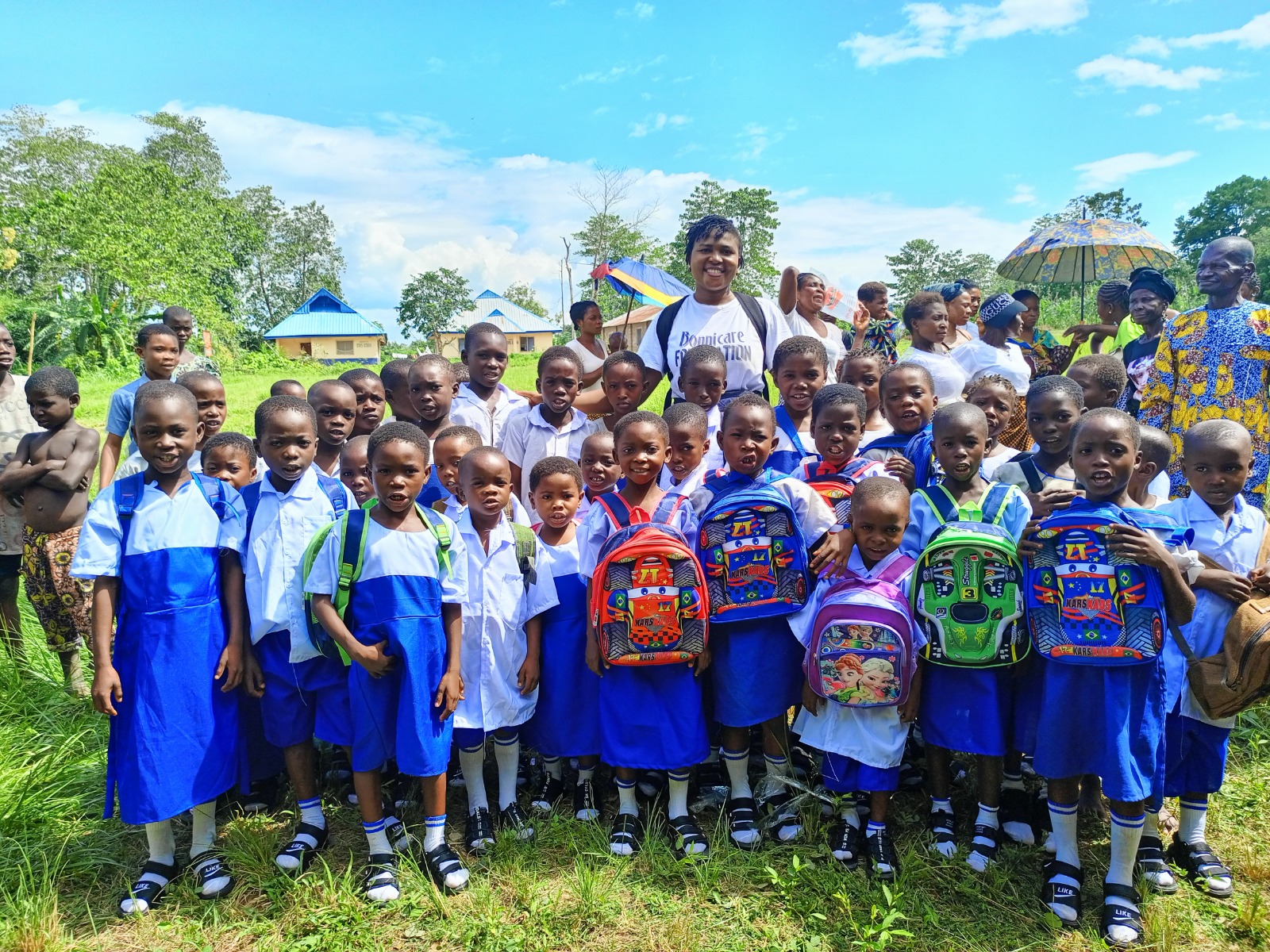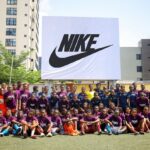Michael’s life could have ended several years ago. As an infant, he lost his mother and six siblings to HIV complications due largely to ignorance. The only surviving child of his family, he lived together with his extended family that included cousins and grandparents in a rural community in Cross River.
At the community’s primary healthcare centre, Michael was given antiretroviral drugs to suppress the effects of HIV inside him and enhance his body health. But his family relatives thought it was only a short time before he suffered the same fate as his mother and siblings.
The family’s impoverished circumstances offered little hope. They subsisted on mostly garri, which caused Michael’s stomach to hurt whenever he took the tablets. Once he tried to stop the pills, his skin became pockmarked with heavy rashes. His viral load—a measure of the amount of HIV particles in his blood—consequently spiked to 41,000.
Staying at home with his grandparents while children went to school, Michael thought he had had enough. On his way to the village stream one morning in 2020, Michael attempted to kill himself. “As he crossed the palm frond on his neck, he was tightening it, and in that process he started to cough,” recalled Janet, a local farmer who had stumbled on the youngster as he prepared to hang himself. Michael was “shocked” as soon as she let out a scream. Janet probed into the kid’s background and offered to enroll him at a local school having heard his tale of misery and neglect.
Yet Michael’s misery was far from over. At school, he faced discrimination from class teachers who feared that they would contract HIV from touching his notebook. Rather, they opted to place it on the floor to mark it.
In 2023, Ideba Edu Ele shared Michael’s heartbreaking tale on her social media after news broke in her community of Michael’s attempted suicide. Ideba is the founder of the Bonnicare Foundation, a non-profit based in Calabar, Nigeria, and established in 2020. In the years since then, the foundation has focused on “education, health and economic empowerment” outreaches across rural communities in Nigeria’s Cross River.
As opposed to many other non-profits, Bonnicare’s employs a strategic means of raising support for its beneficiaries and campaigns—visual storytelling.
“Unlike most, we’re able to achieve our goal and funding through storytelling on social media,” she explained. “This approach helps humanise the challenges rural communities face and drives deeper engagement.”
Ideba added that the foundation has depended exclusively on the goodwill of social media, particularly from Twitter users, to help support Michael and several other victims of discrimination in rural towns.
Bonnicare’s most significant impacts can be found in the sphere of education. “We have paid the school fees and provided educational materials for more than 1000 primary-and secondary-school students in rural communities,” Ideba noted. One of such students is Esther, a native of Akwa Ibom. Esther’s father had abandoned her and five sisters because her mother couldn’t bear a male child. The girls struggled to fend for themselves and their single mother in the aftermath.
Thanks to Bonnicare’s crowdfunding efforts, the 22-year-old is completing her undergraduate studies in public administration. “We not only took care of her school fees through the kind donations of her sponsor,” Ideba said. “We started her with a monthly stipend and paid for her house rent per year.”
Similarly, the initiative has made notable imprints in community development too. In 2023, in collaboration with another NGO called Girls’ Power Initiative, Ideba spearheaded a campaign to stamp gender-based violence out of her home town. The advocacy was aimed at influencing the community’s chiefs to enact bylaws against early child marriage, female genital mutilation and various repressive cultural practices against women.
“When people hear of empowerment, they quickly think about money. You can also empower people with knowledge,” Ideba said, highlighting the widespread impacts of the community sensitisation despite limited funds.
Ideba initially started the non-profit with 5 family members, whom she fondly called her “official founding volunteers.” Today, Bonnicare has 16 volunteers, working together to drum support and provide succour to beneficiaries such as Michael.

In December 2023, after Ideba broadcast Michael’s story, one Twitter user offered a one-year subscription of N50,000 each month, which has allowed him to maintain a nutritious diet and adhere to his medication regimen. His last test revealed a drop in his viral load to 31, showing significant improvement in his immune health.
But as sponsorship for Michael’s welfare draws to an end, Ideba and her team hope to find support to ease the family’s feeding challenges. It isn’t sure if the support will come soon.
“We’re yet to secure any funding or grants,” Ideba bemoaned, adding that the organisation’s current source of funding from social media is unsustainable.
Part of this problem, she added, is hampered by limited Internet reach. Much of the foundation’s rural interventions do not reach a broader audience. “If people don’t know you, they won’t be able to support you.”
Despite the odds, Ideba finds relief in the transformation of youngsters like Michael, who sits at the top of his class now. Bonnicare also sponsors 3 others in Michael’s household. “Truth is that a lot of what we intend to do will be actualised when we have access to funding,” she said. “For now we do the best we can with what we have.”
This story was produced with the support of Nigeria Health Watch through the Solutions Journalism Network, a nonprofit organisation dedicated to rigorous and compelling reporting about responses to social problems.
Michael, the sole surviving child of a family devastated by HIV, struggled with his health and societal discrimination. Living in poverty, he faced severe health challenges and discrimination in school. In 2023, Ideba Edu Ele of the Bonnicare Foundation highlighted Michael's story on social media, leading to financial support for his nutritional and medication needs. Bonnicare, focusing on education, health, and empowerment in rural areas, uses storytelling to garner support for individuals like Michael. The foundation has made significant impacts in education, assisting over 1,000 students, and in community development, advocating against gender-based violence. Despite challenges in securing sustainable funding and visibility, Bonnicare continues to support individuals like Michael, whose health and academic standing have significantly improved thanks to the foundation's efforts.






